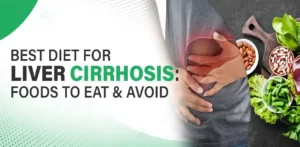Contents
- 1 The Importance of an SBS Diet
- 2 Foods for Short-Bowel Syndrome Patients
- 3 Nutrition During SBS Treatment
- 4 SBS-Friendly Meals
- 5 Diet for Short-Bowel Syndrome Management
- 6 SBS Nutrition Tips
- 7 Best Foods for SBS
- 8 SBS Nutrition Therapy
- 9 SBS-Friendly Recipes
- 10 SBS Meal Ideas
- 11 Ordering Healthy Food for SBS on IntRest
Short-bowel syndrome (SBS) is a condition that arises when a significant portion of the small intestine is removed or non-functional. This can lead to malabsorption of nutrients, which necessitates careful management of diet and nutrition. People with SBS often struggle with digestion and nutrient absorption, making it crucial to adopt a specialized diet to maintain health and wellbeing.
The Importance of an SBS Diet
An SBS diet is tailored to support the unique nutritional needs of individuals with short-bowel syndrome. This diet aims to maximize nutrient absorption, minimize digestive discomfort, and maintain overall health. Given the challenges SBS patients face, the right dietary choices are essential for managing symptoms and preventing complications.
Foods for Short-Bowel Syndrome Patients
Choosing the right foods is vital for SBS patients. The focus should be on nutrient-dense options that are easy to digest. Here are some key food groups and suggestions:
- Proteins: Lean meats, fish, eggs, and dairy products provide essential amino acids. For those who are lactose intolerant, lactose-free dairy or plant-based alternatives like tofu can be beneficial.
- Carbohydrates: Easily digestible carbs such as white rice, pasta, and refined grains can be more suitable than whole grains, which might be harder to digest.
- Fats: Healthy fats from sources like olive oil, avocado, and nut butters can provide necessary calories without overwhelming the digestive system.
- Fruits and Vegetables: Cooked or pureed fruits and vegetables are generally easier to digest than raw ones. Bananas, applesauce, and well-cooked carrots and potatoes are good options.
- Fluids: Staying hydrated is crucial. Patients should drink fluids between meals rather than during them to improve nutrient absorption.
Nutrition During SBS Treatment
During the treatment of short-bowel syndrome, maintaining proper nutrition is crucial. This often involves working with a dietitian to create a personalized nutrition plan. Key components of SBS nutrition therapy include:
- Hydration: Ensuring adequate fluid intake to prevent dehydration.
- Electrolyte Balance: Monitoring and supplementing electrolytes as needed, particularly sodium, potassium, and magnesium.
- Vitamin and Mineral Supplementation: Due to malabsorption, patients may require supplements for vitamins A, D, E, K, B12, and minerals such as iron and zinc.
- Caloric Intake: Ensuring sufficient calorie intake to meet energy needs and support recovery.
SBS-Friendly Meals
Creating meals that are both nutritious and easy to digest is a cornerstone of managing SBS. Here are some SBS-friendly meal ideas:
- Breakfast: Scrambled eggs with white toast and a side of applesauce.
- Lunch: Grilled chicken breast with mashed potatoes and steamed carrots.
- Dinner: Baked fish with white rice and cooked spinach.
- Snacks: Greek yogurt, cheese slices, or a banana.
Diet for Short-Bowel Syndrome Management
Effective diet management for SBS involves careful planning and monitoring. Here are some essential tips:
- Small, Frequent Meals: Eating smaller meals more frequently can aid digestion and absorption.
- Avoid High-Fiber Foods: Foods high in fiber can exacerbate symptoms. Opt for low-fiber alternatives.
- Monitor Fat Intake: While fats are necessary, too much can cause diarrhea. Balance is key.
- Limit Sugary Foods: High-sugar foods can lead to dumping syndrome, where food moves too quickly through the digestive system.
- Stay Hydrated: Drink fluids between meals and avoid caffeine and alcohol.
SBS Nutrition Tips
Here are some additional SBS nutrition tips to help manage the condition:
- Chew Thoroughly: Chewing food well can aid in digestion and absorption.
- Keep a Food Diary: Tracking what you eat and how you feel can help identify problem foods and make necessary adjustments.
- Consult Regularly with a Dietitian: Regular consultations can ensure your diet remains balanced and adapted to your needs.
Best Foods for SBS
Focusing on the best foods for SBS can make a significant difference. Here are some recommended options:
- Proteins: Lean meats, fish, eggs, and low-fat dairy.
- Carbs: Refined grains, white bread, and low-fiber cereals.
- Fats: Avocado, olive oil, and nut butters in moderation.
- Fruits: Bananas, melons, and canned fruits without added sugar.
- Vegetables: Well-cooked, peeled, and seeded options like carrots and squash.
SBS Nutrition Therapy
SBS nutrition therapy often involves a multidisciplinary approach. This includes working with healthcare providers to monitor and adjust dietary needs. Nutrition therapy aims to:
- Optimize Nutrient Absorption: Tailoring the diet to enhance the absorption of nutrients.
- Minimize Gastrointestinal Symptoms: Adjusting food choices to reduce symptoms like diarrhea and bloating.
- Support Overall Health: Ensuring a balanced intake of all essential nutrients.
SBS-Friendly Recipes
Creating delicious SBS-friendly recipes can make meal times more enjoyable. Here are a few ideas:
- Chicken and Rice Soup: A soothing, easy-to-digest meal.
- Banana Smoothie: Made with lactose-free milk or almond milk.
- Baked Cod with Mashed Potatoes: A simple, nutritious dinner option.
- Egg Salad: Made with mayonnaise and served on white bread.
SBS Meal Ideas
Variety is important to prevent dietary boredom. Here are some SBS meal ideas to keep your diet interesting and nutritious:
- Oatmeal with Berries: Use low-fiber oats and cook thoroughly.
- Turkey Sandwich: Made with white bread, lean turkey, and a slice of cheese.
- Salmon with Quinoa: Cook quinoa well to ensure it’s easy to digest.
- Fruit Parfait: Layered with Greek yogurt and soft fruits.
Ordering Healthy Food for SBS on IntRest
At IntRest, we understand the complexities of managing short-bowel syndrome through diet. Our platform categorizes restaurant menus according to diseases, allergies, diets, and user interests, making it easy for you to find SBS-friendly meals. You can order healthy food that meets your specific dietary needs, ensuring that managing your condition is convenient and delicious.
Managing short-bowel syndrome requires a thoughtful approach to diet and nutrition. By focusing on SBS-friendly foods and meal ideas, you can maintain your health and enjoy your meals. Remember, with IntRest, finding healthy, tailored food options has never been easier. Visit our website to discover SBS-friendly meals that cater to your dietary needs and preferences.
With this comprehensive guide, you can better understand how to manage short-bowel syndrome through proper nutrition and find suitable meal options effortlessly.



